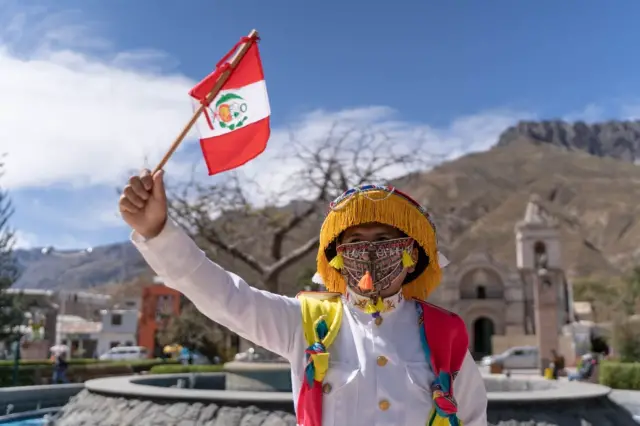In Peru, many workers, employers, and even authorities make the mistake of using the terms "holiday" and "non-working day" interchangeably. However, this confusion can have legal and financial consequences for both companies and employees. Knowing how to correctly differentiate these concepts is key to avoiding errors in payroll management, scheduling work shifts, ensuring appropriate financial compensation, and complying with regulatory obligations.
Both holidays and non-working days often imply suspension of activities, but the legal conditions that govern them are different. Throughout this article, we'll explain what Peruvian law establishes for each, how they apply in the public and private sectors, and what impact they have on your labor rights and responsibilities.
What is a holiday in Peru?
Holidays are legally determined dates where, as a general rule, workers are entitled to mandatory paid rest. This means that even if they don't work, they receive their full salary, just as if they had worked that day. This provision is regulated by Legislative Decree No. 713, which is mandatory nationwide.
Mandatory national holidays
In Peru, there are fixed national holidays, celebrated every year on the same dates. Some of the most important and well-known are:
January 1 – New Year
Holy Thursday and Good Friday – Holy Week
May 1 – International Labor Day
July 28 and 29 – National Holidays
December 8 – Day of the Immaculate Conception
December 25 – Christmas
These holidays apply equally to both the public and private sectors. Some sectors, such as education and healthcare, may operate under special regimes, but the general rule is that the day is observed as a mandatory day of rest.
What happens if you work on a holiday?
When a worker works during a holiday without receiving a substitute rest period, the law stipulates that they must receive triple pay . This consists of:
Your usual daily salary (for the holiday),
Additional payment for work performed,
A 100% surcharge on the value of the day worked.
This right is non-waivable and must be fulfilled even if the worker voluntarily agrees to work. Companies that fail to comply could face sanctions from the Ministry of Labor.

What is a non-working day?
A non-working day is a date established by the Government through a supreme decree, on an exceptional basis, and whose application is primarily intended for the public sector. It is generally used to generate long weekends or long weekends, in order to promote domestic tourism and social relaxation, especially when it coincides with nearby holidays.
Characteristics of non-working days
Main application in the public sector : state entities must take a day off, unless the service cannot be stopped (such as hospitals or police).
Optional in the private sector : Companies can choose whether or not to observe this non-working day. If they do, they must have prior agreement with their employees.
They are not automatic rest days : unlike holidays, hours not worked on a non-working day must be compensated on subsequent days, according to an agreement between the employer and the employee.
There is no additional payment for working , unless the collective agreement or the employer provides a specific benefit.
Key differences between non-working days and holidays
To clearly understand how they differ, consider the following comparison table, which summarizes the most important legal and practical aspects:
| Feature | Holiday | Non-working day |
|---|---|---|
| Legal basis | Legislative Decree No. 713 | Supreme Decree |
| Application | Mandatory (public and private) | Optional (mainly public sector) |
| Remuneration | Rest with joy of having | Requires subsequent compensation |
| Extra pay if you work | Triple pay | No, unless by special agreement |
| Character | National and fixed | Exceptional and variable |
What does Peruvian law say about both?
The Peruvian regulatory framework establishes clear rules. Holidays are protected by national law, and any violation can be sanctioned by the National Superintendency of Labor Inspection (Sunafil). Employers are required to provide paid rest or pay triple pay if work is done on that day.
In the case of non-working days, their non-mandatory nature clearly differentiates them from holidays. They are regulated by supreme decrees and typically include a clause stating that the hours not worked must be made up. This means that their enjoyment is subject to internal agreements, making them a more flexible and adaptable benefit.
Implications for workers and employers
For the workers
Knowing these differences is essential to protecting your rights. For example, if you work a holiday without compensatory rest, you are entitled to triple your daily wage. In contrast, if your employer gives you a day off, you should be aware of when and how that time will be recovered.
It's also important to be informed about the type of employment regime you belong to, as some sectors such as healthcare, transportation, and retail operate with special schedules.
For employers
Employers must be clear about which days represent a legal obligation and which allow greater flexibility. Misinterpreting a non-working day as a holiday could result in unjustified triple pay, generating unnecessary cost overruns and potential legal disputes.
It is advisable to plan ahead, review published supreme decrees, and clearly communicate the provisions to workers to avoid misunderstandings.
Special cases and recent examples
In 2024, the Peruvian government declared the following as non-working days:
Monday, April 29 , to make a long weekend with the May 1 holiday.
Friday, July 26 , on the eve of Fiestas Patrias.
These decisions sought to boost domestic tourism and promote economic activity in the regions. However, in the private sector, many companies chose not to comply, especially in sectors that cannot halt operations, such as manufacturing, retail, or telecommunications.

Practical recommendations
Consult the official annual calendar , published by the Ministry of Labor or the PCM.
Negotiate clear agreements with your employer regarding the recovery of non-working days.
Document any changes to your schedule to avoid future claims.
Know your specific work regime , as some workers have different rules regarding breaks, holidays, and compensation.
Frequently Asked Questions (FAQ)
Are holidays paid double in Peru?
Not exactly. If you don't work, you're simply paid as a regular day's wage. Only if you work on a holiday without a substitute rest period should you be paid triple the wage.
What happens if I work on a non-working day?
You are not entitled to additional pay, but you will have to make up that time later. It all depends on the agreement you have with your employer.
Are non-working days mandatory in the private sector?
No. Private companies can decide whether or not to adhere to these dates, provided they reach an agreement in advance with their employees.
Can there be regional holidays?
Yes. For example, Arequipa celebrates its anniversary on August 15th as a holiday, but this doesn't apply nationwide. It only applies to its jurisdiction.
Where can I find the official dates?
You can check the portal of the Ministry of Labor and Employment Promotion (MTPE) , the Presidency of the Council of Ministers (PCM) , or the official newspaper El Peruano.
Get informed, plan and protect your rights
In an increasingly dynamic work environment, it's vital to understand the difference between non-working days and holidays in Peru. This distinction not only affects your salary, but also your time, your rights, and your well-being. Always stay informed, review annual decrees, and talk to your employer to ensure you're complying and receiving the appropriate amount according to current regulations.
Share this information with your team or network. Workplace education begins with knowing your rights.
